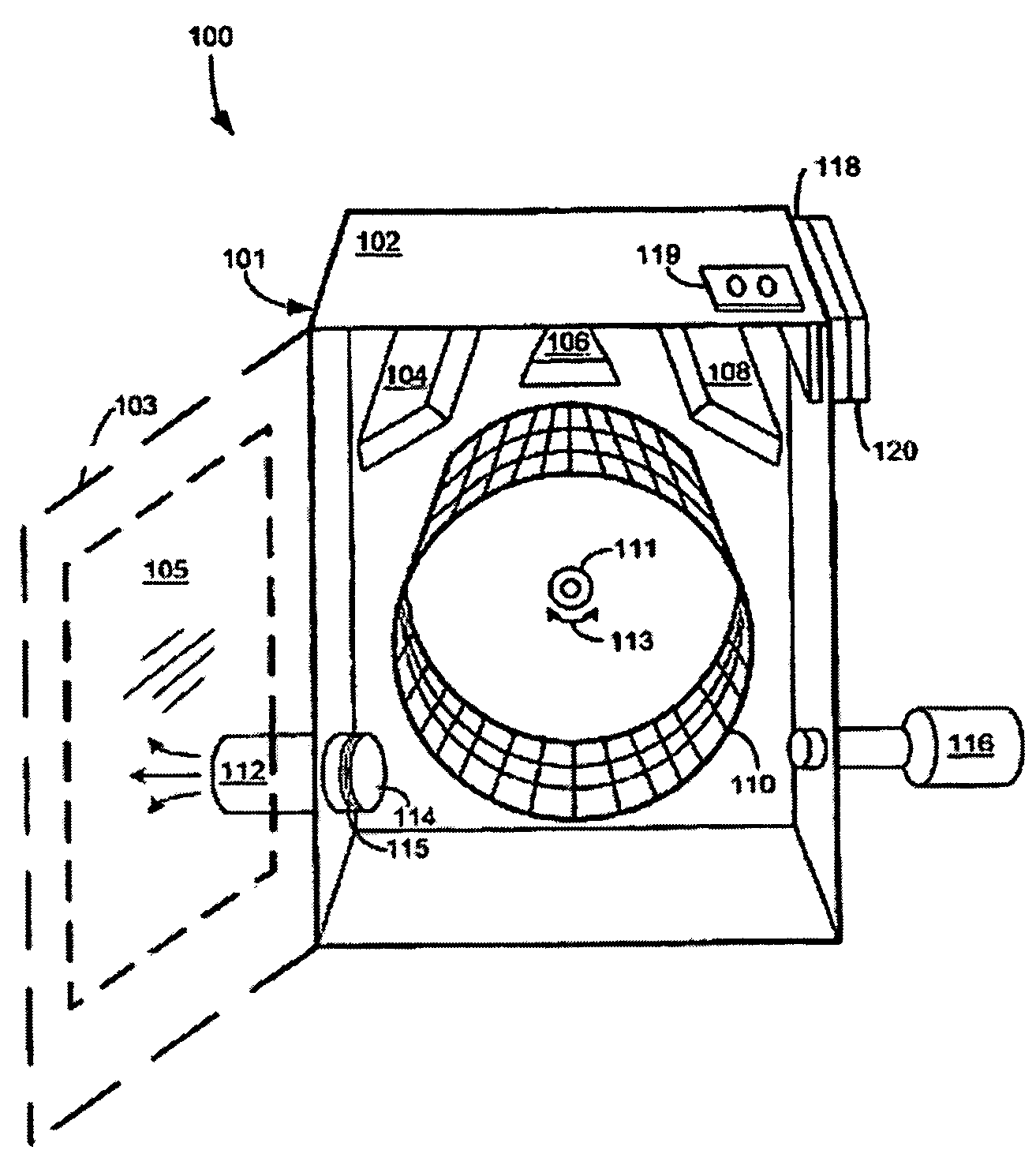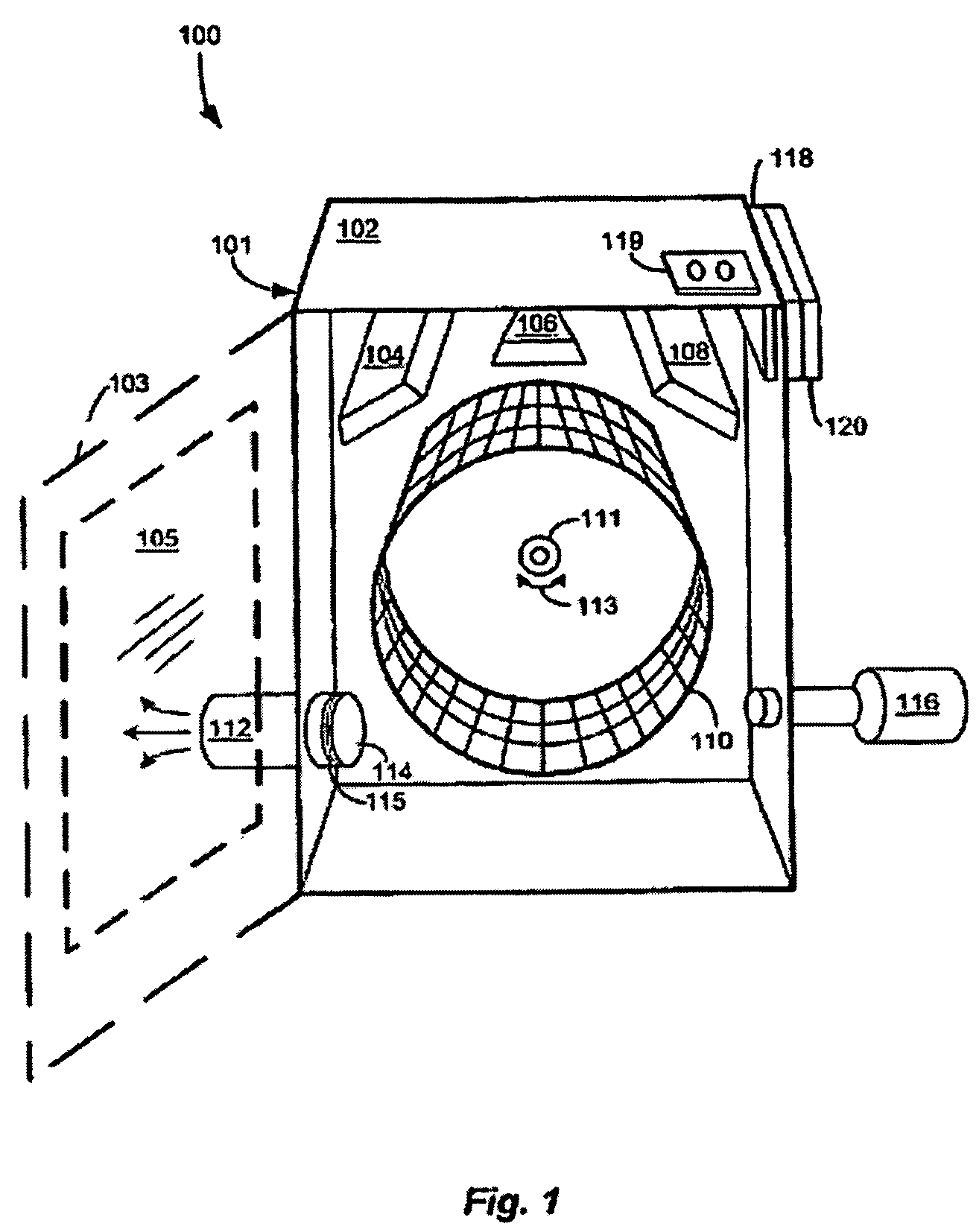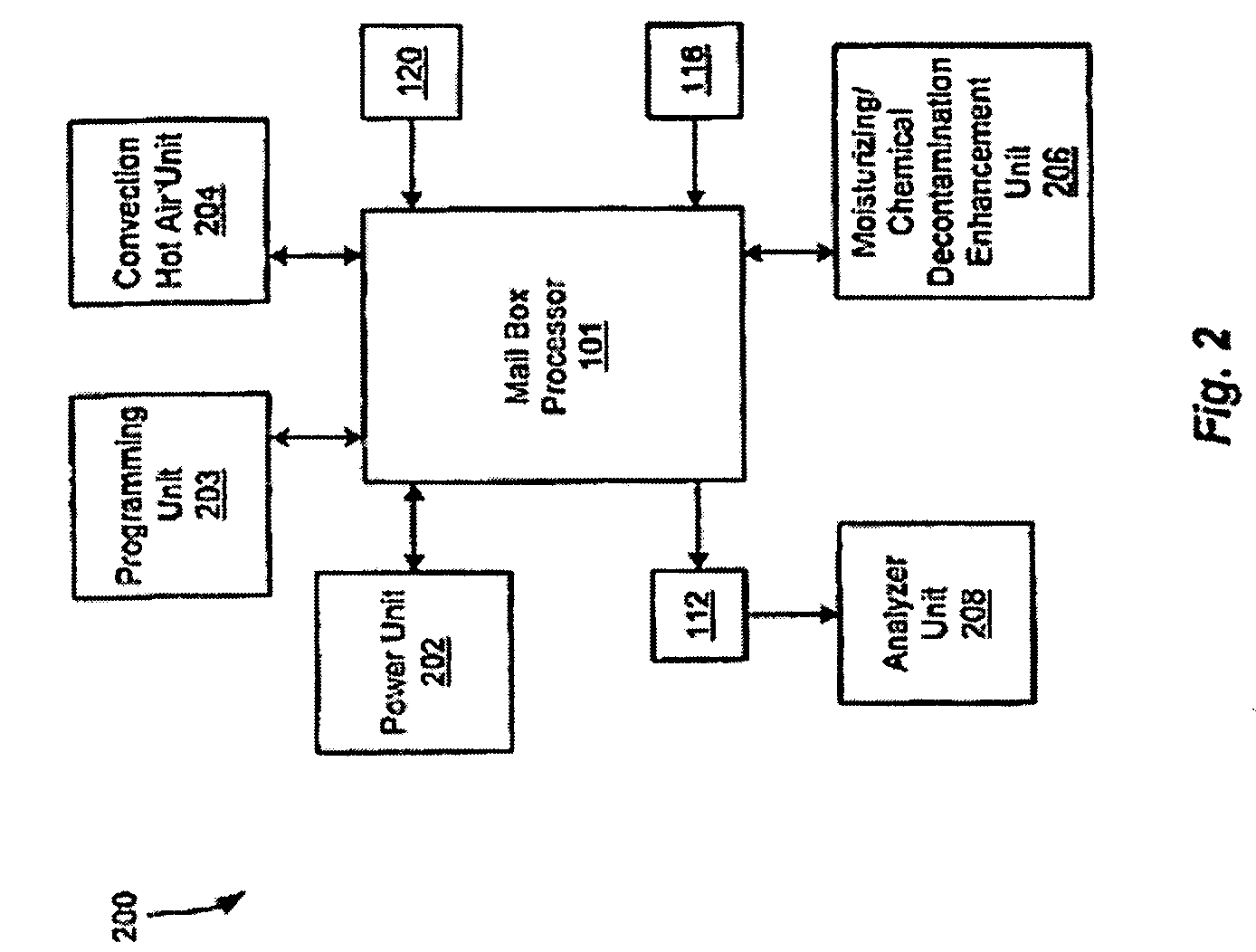Article processing apparatus and related method
a technology of processing apparatus and articles, applied in the direction of lighting and heating apparatus, cleaning using liquids, instruments, etc., can solve the problems of inadvertent contamination of articles with biological and/or chemical contaminants, potential harm to intended recipients, and intentional contamination of articles with harmful substances, etc., to minimize health risks
- Summary
- Abstract
- Description
- Claims
- Application Information
AI Technical Summary
Benefits of technology
Problems solved by technology
Method used
Image
Examples
Embodiment Construction
[0002]1. Field of the Invention
[0003]The present invention relates generally to systems and methods of disinfecting and / or decontaminating articles, and more specifically to a system and method of efficiently disinfecting and / or decontaminating articles such as pieces of mail that may have been exposed to diverse biological and / or chemical contaminants.
[0004]2. Background of the Invention
[0005]In recent years, there has been an increasing need for improved techniques of disinfecting and / or decontaminating articles that may have been intentionally or accidentally exposed to biological and / or chemical contaminants harmful to humans or animals. For example, such articles may have been inadvertently tainted with biological and / or chemical contaminants as a result of a laboratory or industrial accident. Alternatively, such articles may have been intentionally contaminated with harmful substances during the commission of a criminal or terrorist act.
[0006]Specifically, there is an increasi...
PUM
| Property | Measurement | Unit |
|---|---|---|
| temperature | aaaaa | aaaaa |
| temperature | aaaaa | aaaaa |
| wavelength | aaaaa | aaaaa |
Abstract
Description
Claims
Application Information
 Login to View More
Login to View More - R&D
- Intellectual Property
- Life Sciences
- Materials
- Tech Scout
- Unparalleled Data Quality
- Higher Quality Content
- 60% Fewer Hallucinations
Browse by: Latest US Patents, China's latest patents, Technical Efficacy Thesaurus, Application Domain, Technology Topic, Popular Technical Reports.
© 2025 PatSnap. All rights reserved.Legal|Privacy policy|Modern Slavery Act Transparency Statement|Sitemap|About US| Contact US: help@patsnap.com



